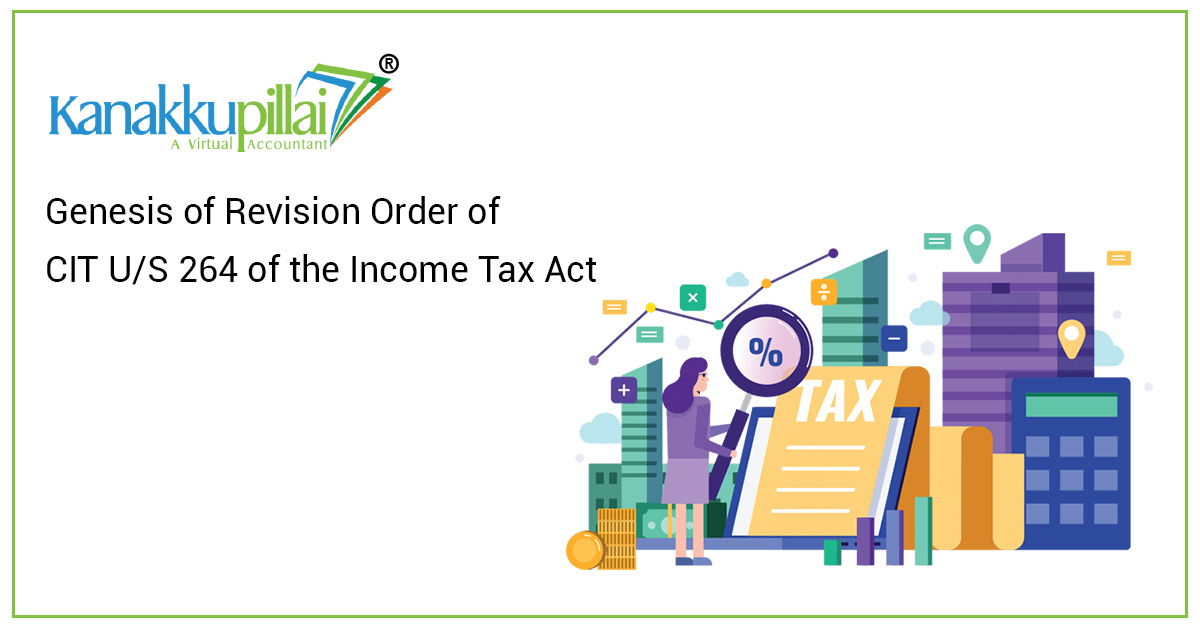If you’ve received a notice of review from the Indian Revenue Service or the IRS, there are a few things you should be aware of to ensure that your experience is as easy and less complex as possible. The last thing you should do is ignore the request to look up the address of the documentation. Without considering whether you have what’s being described, communicating with the inspector and saying extra is an excellent opportunity to consent, which could help you avoid additional complications and hefty expenditures, or legal costs.
This remedy is accessible to the Assessee as an alternative to the CIT(A), but it is not in addition to the appeals. It is referred to as a departmental remedy; however, it cannot be used as backup or secondary to an appeal to CIT(A), which is made as per the provisions of section 246A of the Act. The Commissioner cannot reject an application under section 264 because the assessee has a right of appeal under the Act. For this section, “order” has a broad definition, which means that in addition to orders under sections 143(3) or 147 or 153A, and 153C, intimation under section 143(1) or application under section 197 are also encompassed in the name “order” under this section.
Even though this section’s jurisdiction is lesser or lower than CIT(A), the CIT still has broad powers and all of the trappings and power that are held by the judicial authority. The CIT has the authority to grant or deny relief as per the formation of a decision based on verification or consideration of different factors. These aren’t arbitrary powers, and they can’t be used as the officer or such official in the authority pleases. It is a power that is accompanied by a responsibility to use it in the assessee’s best interests.
Even if the facts are not presented to the AO, the CIT has a responsibility to consider them to the greatest extent possible. In the case of Phool Lata Somani versus CIT, the honourable Calcutta High Court ruled in the same direction (refer 276 ITR 216). Because the rectification order trumps the assessment order and the subsequent cancellation of the assessment order does not validate such revision orders, the revision of the assessment order after its rectification under section 154 is not valid.
Even if the revision application is denied, the CIT’s revision order associate or club, or even merge with the order of the authority that is subordinate to the same. As a result, the revision order now becomes not appealable under section 246A of the CIT(A) or section 253 of the ITAI. This order, however, falls under the purview of Article 226 of the Constitution because it is judicial or quasi-judicial.
Within one year of receiving notice of the challenged order, the Assessee must file a revision under section 264. In the case of Muthiah Chettiar versus CIT, the Madras High Court defined “Date of Order” as the date on which the order is notified to the assessee.
If a late revision petition is filed by an assessee, it should be accompanied by appropriate justifications, and the CIT should be generous in the case of a delay. In the case of Parijat Chemicals Pvt Ltd against ITO, the MP High Court affirmed the same (refer to 216 ITR 221). This clause gives the revisionary authority more power to remedy not just errors perpetrated by subordinate authorities but also errors that have been committed by the assessee, which was necessarily held in the case, namely, Hitech Analytical Services versus PCIT (refer 402 ITR 479).
According to section 264(4) of the Income Tax Act, if the time limit for filing appeals to CIT(A) or a tribunal has not elapsed or the assessee has not relinquished their right to appeal, the CIT will not accept the revision application. A revisionary or a revised order cannot be approved if an order is the subject of an effective appeal. If the CIT(A) refuses to hear the appeal because the taxpayer has not paid the confessed and liable tax or because the appeal is time-barred, the revision order can be accepted. This is because these reasons aren’t covered by the effective appeal.





